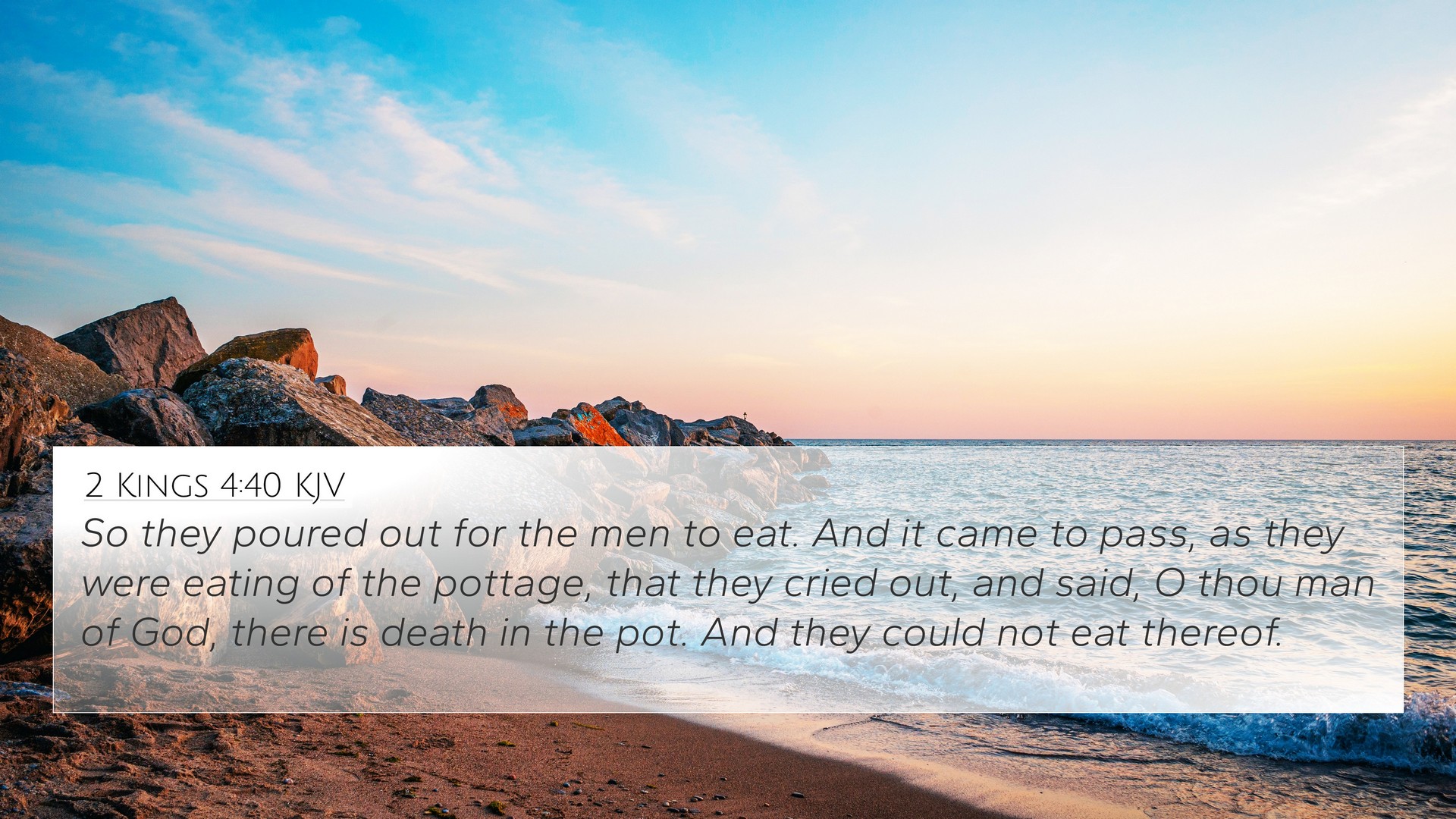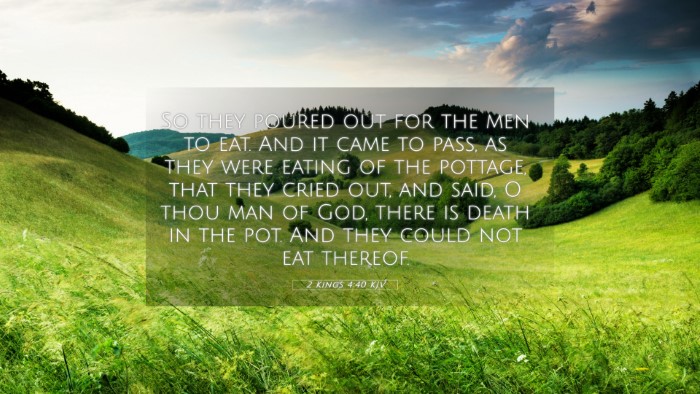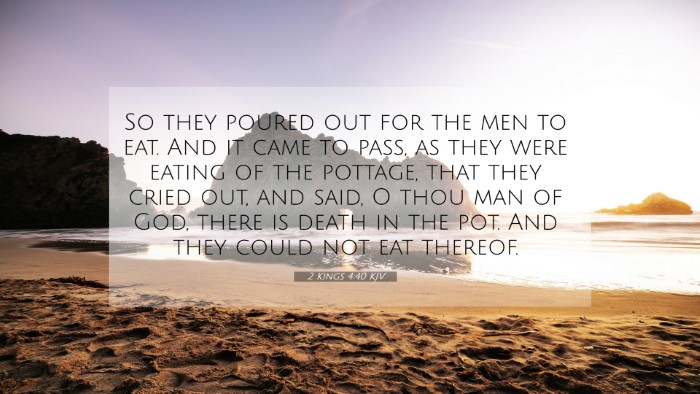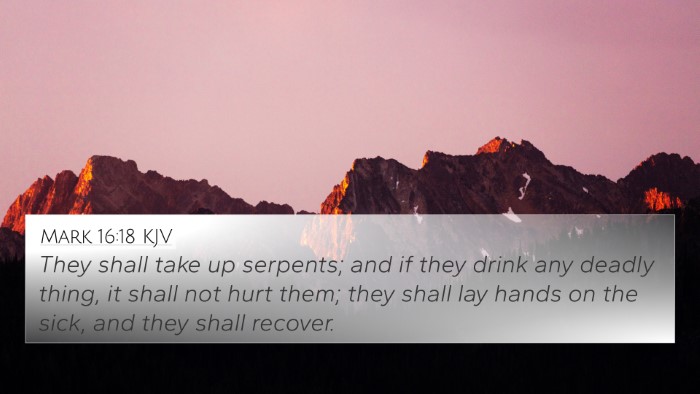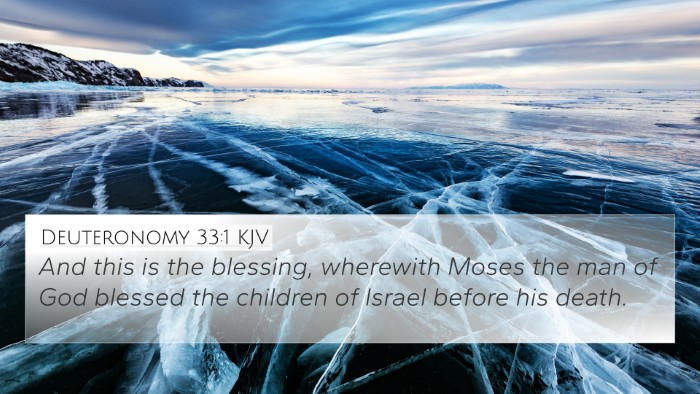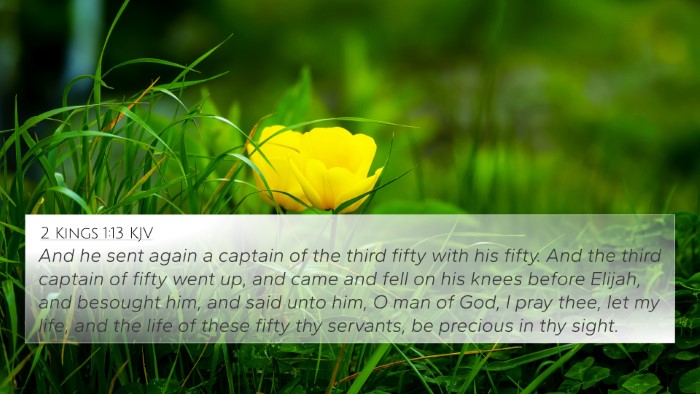Understanding 2 Kings 4:40
Verse Context: 2 Kings 4:40 recounts a situation where a stew prepared by the prophets becomes poisoned, leading to a crisis within the prophetic community. This event reflects God's provision and protection despite adversity.
Summary of 2 Kings 4:40 Meaning
“So they poured out for the men to eat. But while they were eating of the stew, they cried out, and said, ‘O man of God, there is death in the pot!’ And they could not eat it.”
This verse indicates the immediate crisis when the prophets discovered that the food they were consuming was poisonous. It highlights themes of divine provision, the dangers of neglecting spiritual discernment, and the miraculous interventions that God can provide in times of need.
Commentary Insights
- Matthew Henry: Henry emphasizes the symbolic significance of the "death in the pot," representing sin and its corrupting influence. He notes that this incident serves as a reminder of how quickly good intentions can be corrupted when the proper spiritual safeguards are not in place.
- Albert Barnes: Barnes points out the communal aspect of this event, as it implicates the entire company of prophets. He argues that their reliance on a common preparation of food signifies the importance of vigilance and wisdom in community living.
- Adam Clarke: Clarke delves into the details surrounding the miraculous resolution when Elisha heals the stew, illustrating God’s power to transform even the most dire situations into moments of grace and sustenance.
Thematic Connections
The event in 2 Kings 4:40 highlights various key themes:
- Divine Intervention: The healing of the poisoned stew by Elisha illustrates God's omnipresence and willingness to intervene in dire circumstances.
- Community and Discernment: It underscores the need for spiritual discernment within the community, pointing out the potential consequences when congregational preparedness fails.
- Spiritual Nourishment: The concept of stew can be seen as a metaphor for the spiritual nourishment that God provides, which can be spoiled if not properly safeguarded.
Cross-References
This passage is intricately linked with several other Bible verses that further dispel its themes:
- 2 Kings 4:5-6: This provides context for the miracles performed by Elisha and signifies God's provision.
- Exodus 15:23-25: The situation at Marah offers a parallel where God turns bitter waters sweet, analogous to purifying the poisoned stew.
- 1 Kings 17:12-16: The miracle of the widow's oil ties together God's provision through acts of faith during scarcity.
- Luke 14:34-35: Here, Jesus talks about the purpose of salt, resonating with the idea of discernment in the spiritual community.
- Matthew 5:13: The believers' role in the world as 'salt of the earth' connects to the theme of preservation and preventing spiritual decay.
- John 6:35: Jesus stating He is the bread of life reinforces the theme of spiritual sustenance.
- Mark 16:17-18: The themes of safety and protection in faith echo the miraculous survival in the face of danger as seen in Elisha’s ministry.
Conclusion
In essence, 2 Kings 4:40 serves as a compelling narrative on the interplay between hope, community, and divine intervention. It reminds believers to remain vigilant and discerning about the spiritual sustenance they partake in both individually and collectively while showcasing God's unwavering commitment to protect and provide for His people.
SEO Keywords
For those exploring the depths of this passage, consider these related keywords:
- Bible verse cross-references
- Connections between Bible verses
- Linking Bible scriptures
- Comparative Bible verse analysis
- Bible verses that relate to each other
- Cross-referencing Biblical texts
- Thematic Bible verse connections
- Bible verse parallels
- Scriptural cross-referencing
- Inter-Biblical dialogue
